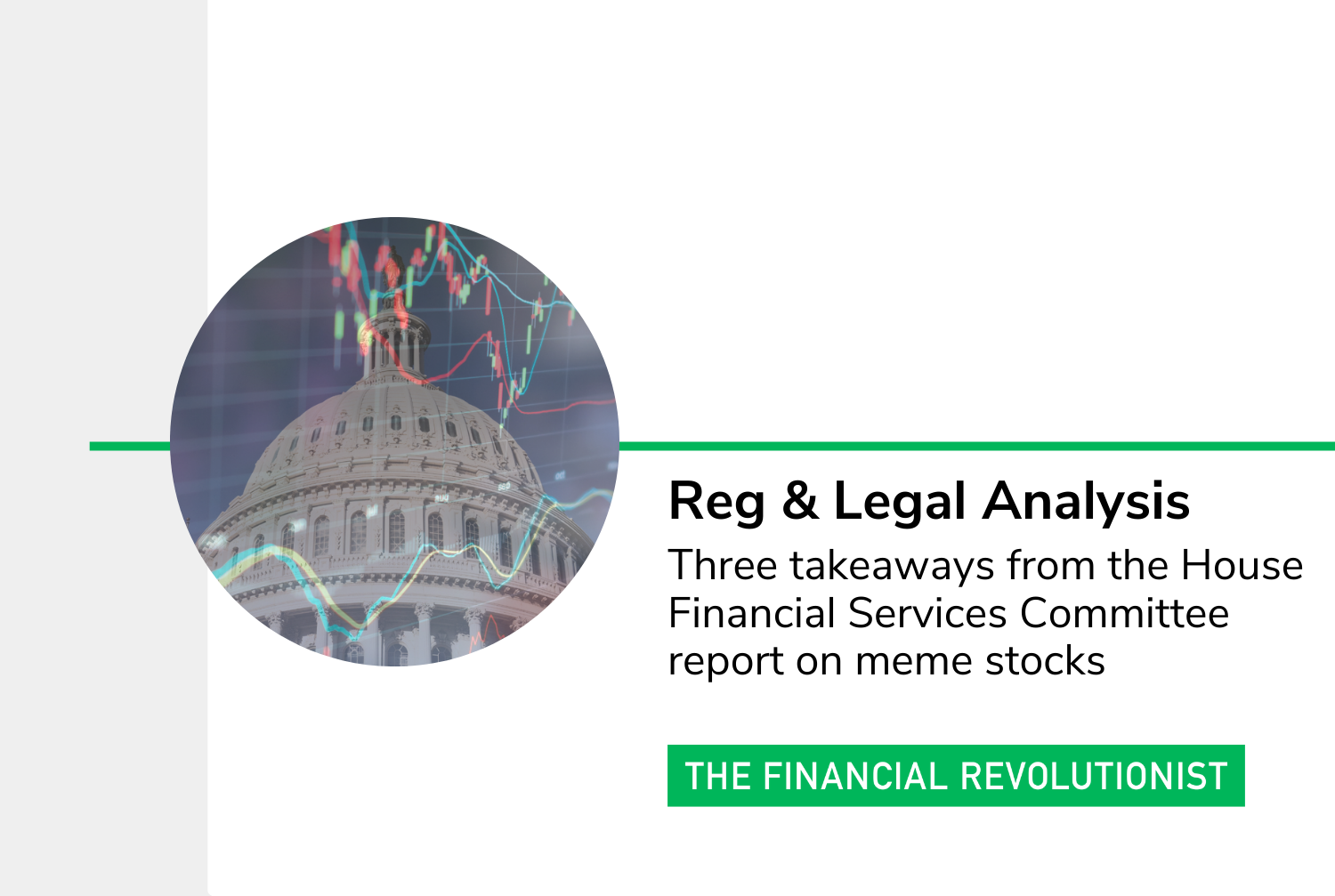Three takeaways from the House Financial Committee report on meme stocks
/In the wake of the r/wallstreetbets fiasco, lawmakers rallied to make sense of the technology—as well as the laws—that made such volatile market behavior possible. Especially through technologies that lower the barrier to public-market access, federal leaders like Congresswoman Maxine Waters and Congressman Al Green sought to establish a historical record while also preventing future crises down the road.
The result of their findings, the US House Committee on Financial Services’ “Game Stopped: How the Meme Stock Market Event Exposed Troubling Business Practices, Inadequate Risk Management, and the Need for Regulatory and Legislative Reform,” was released in June 2022. The report offers insightful commentary on the meme-stock phenomenon, while proposing legislative changes that can prevent collapses in the future.
Troubled management at Robinhood
In its report, the House Financial Services Committee states that Robinhood operations and tech incentivized risky behavior during the meme stock craze. The report suggests that:
Robinhood pioneered a new business model marked by commission-free trading supported by payment for order flow (PFOF), in which trading platforms route their customers’ orders to market making firms like Citadel Securities for a fee. In this business model, brokers can profit from volatility in the stock market as increased trading activity generates more PFOF rebates. Accordingly, Robinhood and other retail-oriented brokers are incentivized to push their customers to make as many trades as possible through digital engagement features that include “game-like features and celebratory animations,” lenient extension of margin trading to their customers, and increased access to fractional shares…
In addition, a disproportionately high order flow and PFOF calculus imposed further strain on other market makers, like Citadel Securities, which left the market at greater risk of collapse. Robinhood also glossed over best practices put forth by FINRA and the Depository Trust and Clearing Corporation (DTCC), leaving it with inadequate stress tests and over $3B in collateral deficits.
Robinhood isn’t alone
“Most of the firms the Committee spoke to do not have explicit plans to change their policies for how they will meet their collateral requirements during extreme market volatility or adopt trading restrictions when market volatility may warrant their introduction,” the report reads. This should be a cause for alarm—if cutting-edge platforms that are focused on growth metrics sustain themselves through risky operations, then this can fuel widespread financial losses among retail investors.
Granted, market activity has shifted significantly in the year since the House Financial Services Committee published its report. (The Committee is also now led by the Republican Party since the 2022 midterm elections.) While retail investors made up 20% of stock market activity during the first half of 2021, up from 10% in 2020, markets have seen retail investors move into other vehicles like high-interest savings accounts and treasury bills in the face of rising interest rates and less-than-favorable public-market performance.
SROs need more muscle
Self-Regulatory Organizations (SROs) under the SEC lacked expansive or strong mechanisms to prevent risky trading-platform behavior. “Without an updated liquidity rule from the SEC, and because FINRA does not have its own capital and liquidity rule, FINRA lacks an adequate foundation to more fully police the liquidity of its member firms,” the report notes.
The National Securities Clearing Corporation, which is overseen by the DTCC, also failed to monitor its member institutions before the frenzy. Combined, these weak practices helped trading platforms and their market-making partners fly under the radar. As a result, the Committee recommended greater oversight of these market participants, more stringent capital and liquidity requirements, and a wholesale consideration of how an increase in retail traders may require new legislation.
While many of these recommendations are in the works—with the SEC looking to strengthen PFOF practices, for instance—others may have to wait until yet another financial crisis hits.









